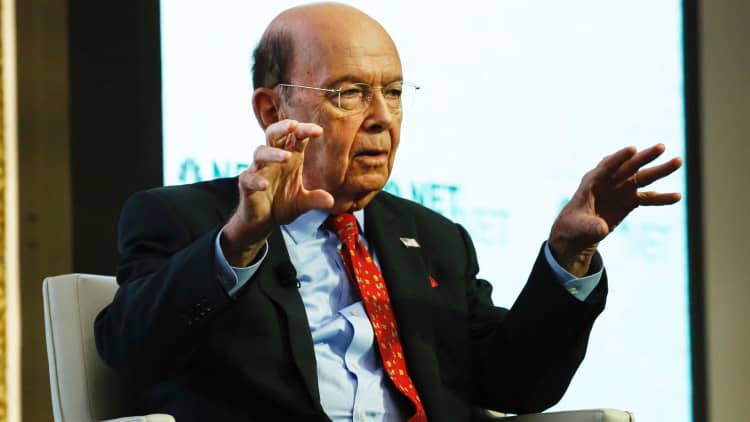
Disagreements over controversial pieces of the Republican tax proposal threaten to trip up the party's efforts to approve a tax overhaul this year.
Commerce Secretary Wilbur Ross on Wednesday at the NetNet event outlined a possible compromise for lawmakers.
The House hopes to pass a budget on Thursday and move one step closer to approving a tax plan. If House Republicans can clear a budget resolution already passed by the Senate, they hope to release a tax bill next week and pass it by Thanksgiving.
Already, sticking points in the plan have emerged, threatening the loss of votes for a party that holds only a narrow majority in the Senate. Ross identified multiple "hard" questions facing the GOP as it aims to broadly chop tax rates for individuals and businesses.
Republicans have to decide whether to add a fourth, highest income tax rate on the wealthy above the top 35 percent outlined in a framework last month.
They also have to consider how to handle several popular deductions like state and local tax deductions. Republican lawmakers in the high-tax blue states that benefit from the provisions already have fought back against a proposal to scrap them.
Ross suggested a cap on the income levels at which the deductions could be used. The income cap could also apply to popular provisions like the charitable deduction, he said.
Doing so "saves some of the money but doesn't do away with the concept," Ross said.
While the White House has given input on the tax plan, like President Donald Trump did when he urged Congress not to change a retirement savings benefit, the congressional tax-writing committees will ultimately decide the bill's shape.
The tax writers sought to get rid of some deductions to offset the deficits created by the tax cuts. A major deficit increase could put off some GOP lawmakers concerned about fiscal discipline.
On the timeline for passing a tax plan, Ross echoed Trump and GOP congressional leaders in saying he wants a bill approved this year.
He added: "I think what's more important is to get it done and get it done properly and to endorse the directional guidance the president has given."
However, Ross said that taking longer to pass a tax proposal could create "indecision" or "paralysis" when businesses or individuals plan financial moves at the end of the year.
While Ross is a top economic advisor to Trump, Treasury Secretary Steven Mnuchin and chief economic advisor Gary Cohn have led the White House effort on taxes.
Ross added that he believes the U.S. will ultimately reach a deal with Canada and Mexico on revising the North American Free Trade Agreement. Negotiations on reworking the deal will go into next year.






